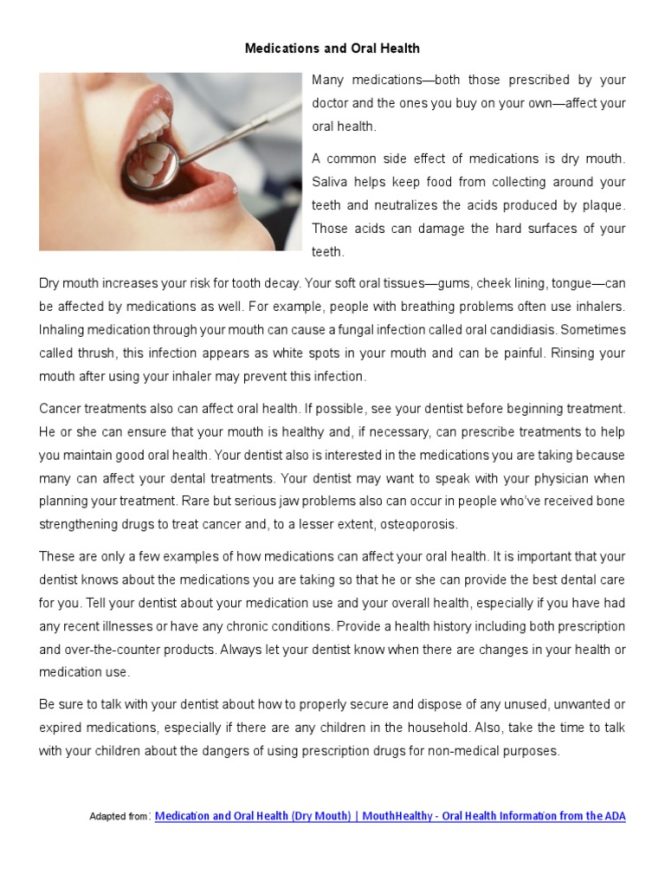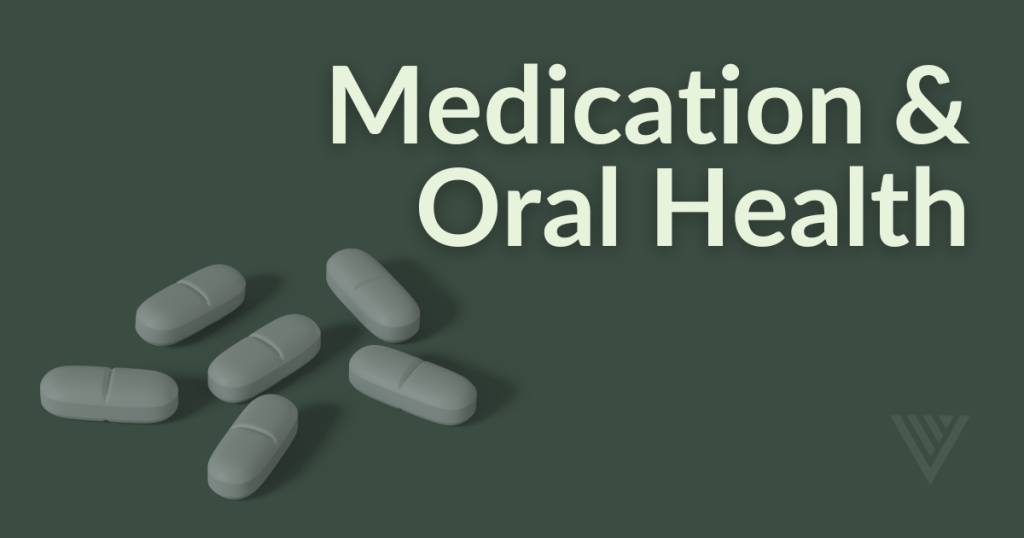

Dental care and medications are intricately linked. Many medications can have a significant impact on oral health, leading to potential issues like dry mouth, tooth discoloration, and gum inflammation. This comprehensive guide explores the relationship between dental care and the impact of medications on oral health, providing practical insights and actionable advice to ensure optimal oral well-being. We’ll delve into the underlying mechanisms, common side effects, preventive measures, and expert advice. This article is structured into sections discussing the specific types of medications, their potential side effects, and practical tips to mitigate these effects.
Understanding the Connection Between Medications and Oral Health
The Impact of Medication on Oral Tissues
Maintaining optimal oral health is essential for overall well-being. A healthy mouth supports a healthy body. However, many medications can influence the delicate balance of oral tissues, potentially leading to negative consequences. This section explores the common oral health issues associated with various medication categories. Understanding the link between medications and oral health is crucial for preventative dental care. For instance, some medications can disrupt the natural saliva production, leading to dry mouth, a condition that increases the risk of cavities and gum disease.
Common Medication Categories and Their Oral Health Effects
Analgesics
Analgesics, including over-the-counter pain relievers, can have varying effects on oral health. For instance, nonsteroidal anti-inflammatory drugs (NSAIDs) like ibuprofen are known to cause dry mouth, a condition that can lead to an increase in cavities. Additionally, frequent use of these medications can increase the risk of gum inflammation. This is particularly important for patients with existing dental conditions. It is crucial to understand that every patient is different, and what affects one person’s mouth might not impact another. The frequency and dosage of the medication play a major role in determining the extent of the effect.
Medications Affecting Saliva Production
Anticholinergics
Certain medications, particularly anticholinergics, can significantly reduce saliva production. This can disrupt the natural cleansing mechanisms of the mouth, increasing the likelihood of cavities and gum disease. Several studies have correlated the use of anticholinergics with a higher risk of oral health complications. For instance, patients taking these medications are encouraged to increase their water intake, chew sugar-free gum, and use saliva substitutes as prescribed by their doctors. Furthermore, regular dental checkups become even more important.
Psychotropic Medications and Oral Health Considerations
Antidepressants
Some psychotropic medications, such as antidepressants and antipsychotics, have also been linked to dry mouth. This side effect can lead to an array of oral issues including the increased risk of cavities and difficulty with oral hygiene. Patients taking these medications should focus on maintaining good oral hygiene practices such as brushing and flossing at least twice a day. They should also be mindful of their dietary habits and limit sugary drinks and foods. Dental visits become essential for proactive monitoring and early interventions.
Other Considerations
Lifestyle Modifications and Oral Health
Ultimately, preventive measures and lifestyle adjustments play a significant role in oral health, regardless of medication use. Maintaining a balanced diet low in sugar, regular dental visits, and using fluoride toothpaste are essential. Addressing oral health concerns promptly is vital to mitigate the impact of medications and prevent further complications. Patients should consult their dentist to understand any potential interactions or side effects specific to their medications. These steps can help maintain a healthy mouth and reduce potential side effects.
Managing Dry Mouth: Practical Strategies
Hydration and Saliva Stimulation
Maintaining adequate hydration is paramount. Patients on medications that cause dry mouth should increase their water intake, ideally throughout the day. Chewing sugar-free gum or sucking on sugar-free candies can also stimulate saliva production. Saliva substitutes are another option, and your dentist or doctor can recommend appropriate types.
Importance of Regular Dental Checkups
Proactive Monitoring and Intervention
Dental checkups become even more vital when taking medications that could affect oral health. Regular professional cleanings and check-ups allow for early detection of potential issues, which often leads to smoother treatment options.
Dietary Considerations
Sugar Reduction and Oral Health
Sugary foods and drinks are often implicated in dental problems. Reducing their intake can be beneficial, regardless of medication use.
Frequently Asked Questions
What are the most common oral health problems caused by medications?
Dry mouth, tooth discoloration, and increased risk of cavities and gum disease are some of the most common oral health problems stemming from medications. Many medications can alter saliva production, which can disrupt the natural cleansing mechanisms of the mouth. The altered environment may promote the growth of harmful bacteria, leading to dental problems. It’s crucial to be aware of these potential issues and take steps to maintain oral hygiene. Regular dental checkups and discussing your medication list with your dentist are vital for proactive management of oral health.
How can I mitigate the negative impacts of medications on my oral health?
Practicing excellent oral hygiene—regular brushing and flossing—is crucial. Using fluoride toothpaste and drinking plenty of water can help counteract dry mouth. Consuming a balanced diet low in sugar is also important. Regular checkups and open communication with your dentist and doctor are essential to stay informed about potential side effects and adjustments to medications or oral hygiene procedures.
What steps can I take if I experience oral health issues due to medication?
Communicating with your dentist and doctor about any oral health issues is paramount. They can assess your specific situation and recommend appropriate solutions. This may involve adjusting your medication regimen or lifestyle changes. For instance, using mouthwash, or even saliva substitutes can help alleviate dryness. Furthermore, early interventions can help prevent potential complications from progressing.
In conclusion, dental care and the impact of medications on oral health are crucial aspects of overall well-being. Understanding how various medications can affect your teeth and gums empowers you to make informed decisions about your treatment and lifestyle. By discussing your medication list with your dentist and practicing diligent oral hygiene, you can actively prevent medication-related oral health issues and maintain a healthy smile. To learn more about specific medications and their potential effects, consult with your doctor or dentist. They can provide personalized guidance based on your individual circumstances.